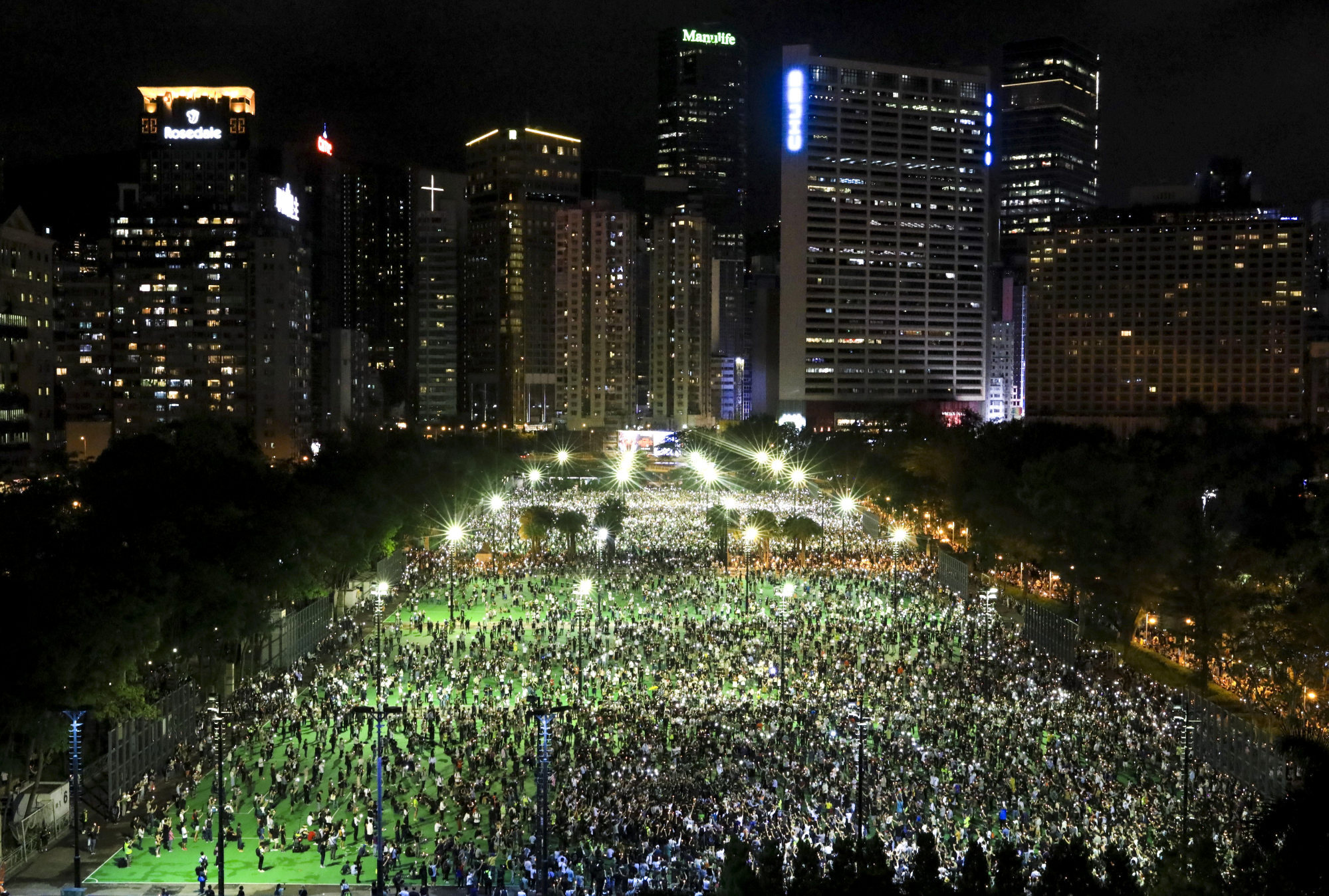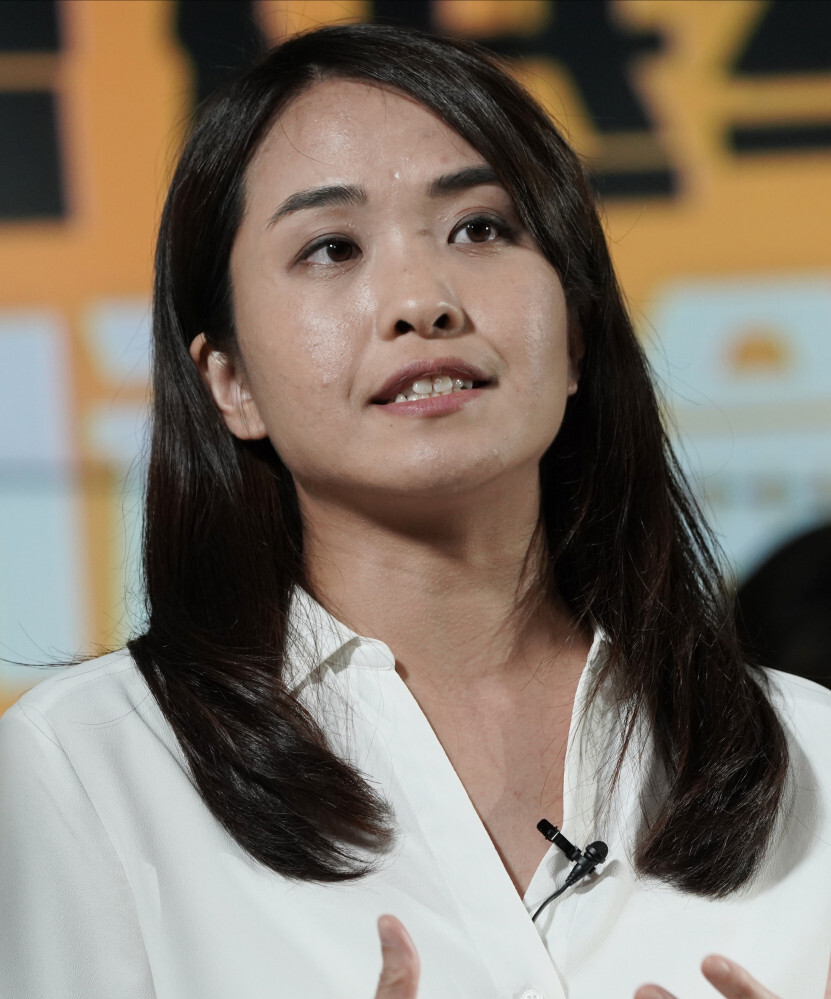
Hong Kong media tycoon Jimmy Lai, 2 others found guilty over unauthorised Tiananmen Square vigil in 2020
- The trio were the last of the 24 opposition activists and former politicians charged over the banned Victoria Park gathering – all were convicted
- Lai, founder of the now-defunct Apple Daily, had denied inciting others to take part in the vigil, saying he had only gone to support the alliance that organised the annual event
Jailed media tycoon Jimmy Lai Chee-ying and two co-defendants have been found guilty of unauthorised assembly charges stemming from last year’s banned Tiananmen Square vigil.

Barrister Chow Hang-tung, formerly a vice-chairwoman of the alliance, had pleaded not guilty to incitement and participation, while activist Gwyneth Ho Kwai-lam faced only the latter charge.
Judge Amanda Woodcock convicted the three of all four charges, after rejecting Lai’s challenge of the legality of the police ban and the trio’s assertion that last year’s vigil was not an unauthorised assembly. She adjourned mitigation and sentencing to Monday.
Lai’s counsel submitted that the tycoon’s prosecution was a disproportionate restriction on his freedom of assembly, noting he had only gone to Victoria Park to support the alliance rather than encouraging the general public to flout the ban as accused.

But Woodcock ruled that Lai was in no position to challenge the police ban of the vigil in court as the issue should have been resolved by an appeal board under the statutory mechanism or by way of judicial review.
“It is unnecessary for the purposes of this trial to determine whether the ban of the public meeting was justified, reasonable or proportionate,” she wrote in her 50-page judgment.
Even if the validity of the police decision was a relevant consideration, Woodcock said she would have sided with the authority “without hesitation” in light of the risk to public health posed by a mass assembly of up to 100,000 people amid the pandemic.
She further held that the tycoon’s presence at a press conference in Victoria Park before the vigil began was a “deliberate act to rally support for and publicly spotlight the unauthorised assembly that followed”.
“He need not use words of incitement to intend to incite others,” the judge added.
Chow and Ho, meanwhile, both maintained that they had visited the park for personal reasons and denied assembling with others for a common purpose.
Chow said she had only taken part in a private gathering of alliance members and friends to light a candle in Victoria Park, an act which did not require police approval.
Ho, meanwhile, claimed she had gone to the park as an act of protest rather than to mark the Tiananmen Square anniversary and was therefore not violating the ban.
But Woodcock dismissed the pair’s arguments as “frankly nonsensical” and “a poor attempt to either negate or repudiate evidence that was overwhelming and undisputed”.
Twenty-one opposition figures previously pleaded guilty to unauthorised assembly charges in relation to their involvement in last year’s event. Thirteen were jailed for up to 10 months, while three others were given suspended sentences.
The rest will be sentenced on Monday alongside the trio convicted on Thursday.
A lower court has also ordered the arrest of fugitive former lawmaker Nathan Law Kwun-chung and activist Sunny Cheung Kwan-yang in relation to the vigil. Both left Hong Kong before they were to appear in court in September last year to answer to participation charges.
Cheung, now an adviser to the United States-based Hong Kong Democracy Council, said Thursday’s convictions amounted to “condemnation of every freedom-loving Hongkonger” who joined last year’s vigil.
“As one of the prosecuted figures over the banned vigil last year, I am outraged to witness how the Hong Kong court has deteriorated into an instrument of the Chinese government to [suppress] our freedoms,” Cheung said.
Amnesty International’s deputy secretary general Kyle Ward said: “The authorities have deemed the vigil ‘unlawful’ because police did not approve it, but peaceful assembly does not need government approval.”
Anyone who incites, organises or takes part in an unauthorised assembly can be jailed for up to five years.
